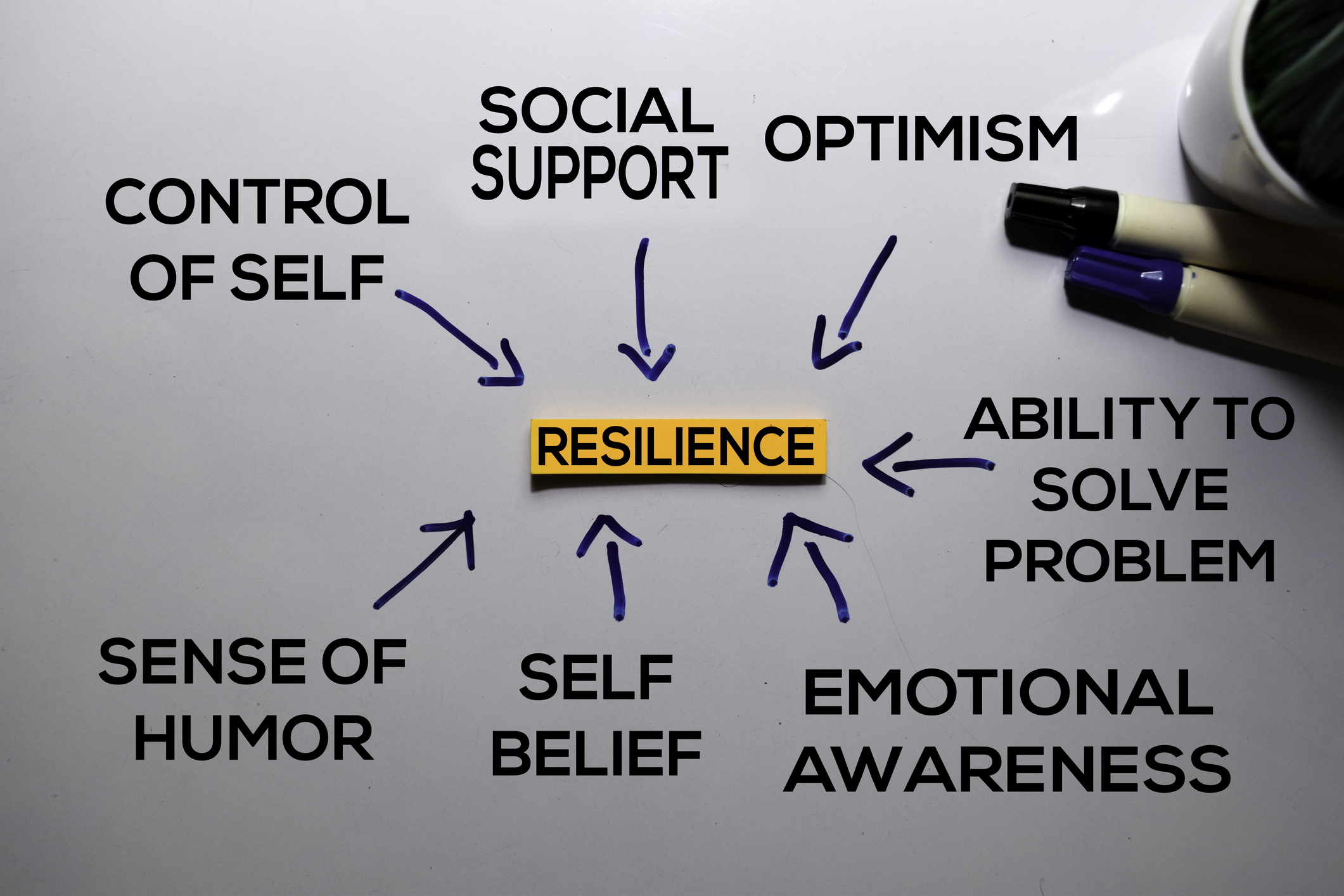5 Leadership Lessons Learned From The Pandemic
March 24, 2021

In the past few months we have conducted surveys of leaders from multiple industries as to their leadership lessons learned from the pandemic.
What we heard back from leaders was that there has been a lot of learning from 2020 and into 2021. Some leaders didn’t want to even think about lessons learned because of the challenges they are continuing to face.
Looking at lessons learned does not negate the reality of challenges – rather – looking at ‘learning’ as a strategy through challenges is a key resilience skill.
One group (anonymous) that I polled in an online virtual presentation gave their input and here is the word cloud of their responses.

As you can see from the responses the lessons learned ranged from ‘isolation’ to empathy, connection and flexibility. The larger the word means that larger number of people had the same response.
Based on surveying thousands of leaders we have compiled the following 5 leadership lessons learned from the pandemic.
- What to do and what ‘not’ to do with technology.
Included in this response was that many leaders struggled with learning new ways to leverage technology. Whether it was in house systems that had to be now accessed remotely or whether it was learning how to use Zoom almost 90% of leaders stated that they learned how to effectively use technology to lead their teams and do their work. You all know the story that was in the media where the lawyer was using Zoom and his kid left a cat filter on so when he logged into a hearing there he was with his cat filter and saying, ” I am not a cat”.
2. Patience.
The anecdotal feedback we heard from the comments sections of the surveys conducted included stories of leaders having a greater realization as to the ‘humanness’ of themselves and their teams. Leaders have learned to exercise more patience with themselves and with others. Let’s all agree that pre-pandemic most of us were running at 110 miles an hour. The complete shut down and then slow down and still slow getting back has required all of us to have herculean patience.
3. Empathy
Over 98% of respondents of our surveys said that they have increased empathy for others. It’s not that we did not have empathy prior to Covid however I think its safe to say that many of us were impatient. Pre pandemic I believe we were all glamorizing technology and because technology has exponentially sped up the way we do things it also increased our impatience. When the pandemic reality caused everything to stop and slow down it created time for us to rethink what it means to be human. Empathy is a key attribute of people with high emotional intelligence and is a skill we talked about prior to 2020 but because of 2020 we are now ‘walking the talk’ of empathy.
4. Flexibility, agility, and adaptability
76% of respondents said that as a result of the pandemic they are much more flexible than they thought they were. We have a client that as soon as they realized that had to enable all workers to work remotely that they quickly and efficiently gathered the technology, the security and the processes to pivot the business. The CEO admitted that prior to the pandemic they resisted remote work and told workers it just wasn’t possible. Now that it has been proven that most companies can have remote work the genie is definitely out of the bottle. In addition now that we have had a real live case study of proving flexibility by making it through the major disruption of a pandemic we also know that there is greater capabilities for change in the future. Many senior leaders see this lesson as a major ‘win’ for the future of work in that the strategies used in the past year and a half can be used to ‘map out’ the potential strategies for future disruptions.
5. Resilience
I have another CEO leader that I am coaching who shared with me that he definitely learned more about what it means to be resilient. There are a number of factors to consider with the term resilience. There is mental resiliency the ability to use creative thinking towards solving problems. There is physical resiliency the ability to stay healthy and well during highly stressful times. There is emotional resiliency, the ability to have high self awareness around emotional responses as well as being able to be empathetic with others emotional responses. Lastly there is stamina resiliency which is the ability to continue moving forward even with the numerous challenges being faced.
The reality is that there is a ‘new normal’ that we are in and are facing. The lessons learned from the pandemic are lessons that we can take forward and leverage into the future.